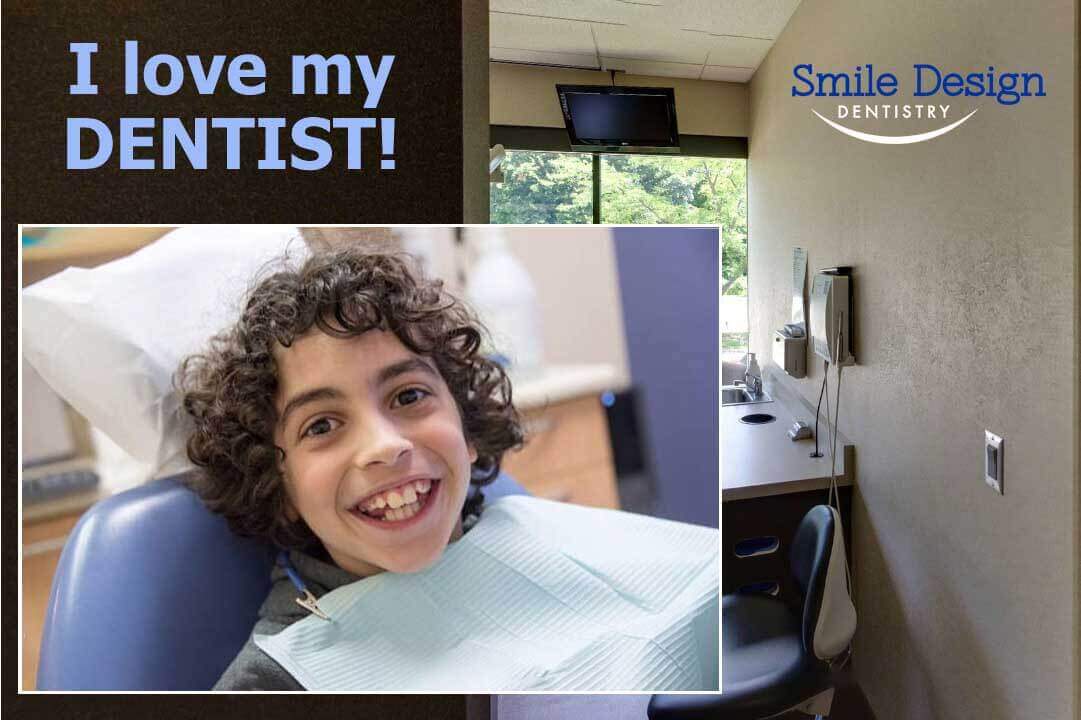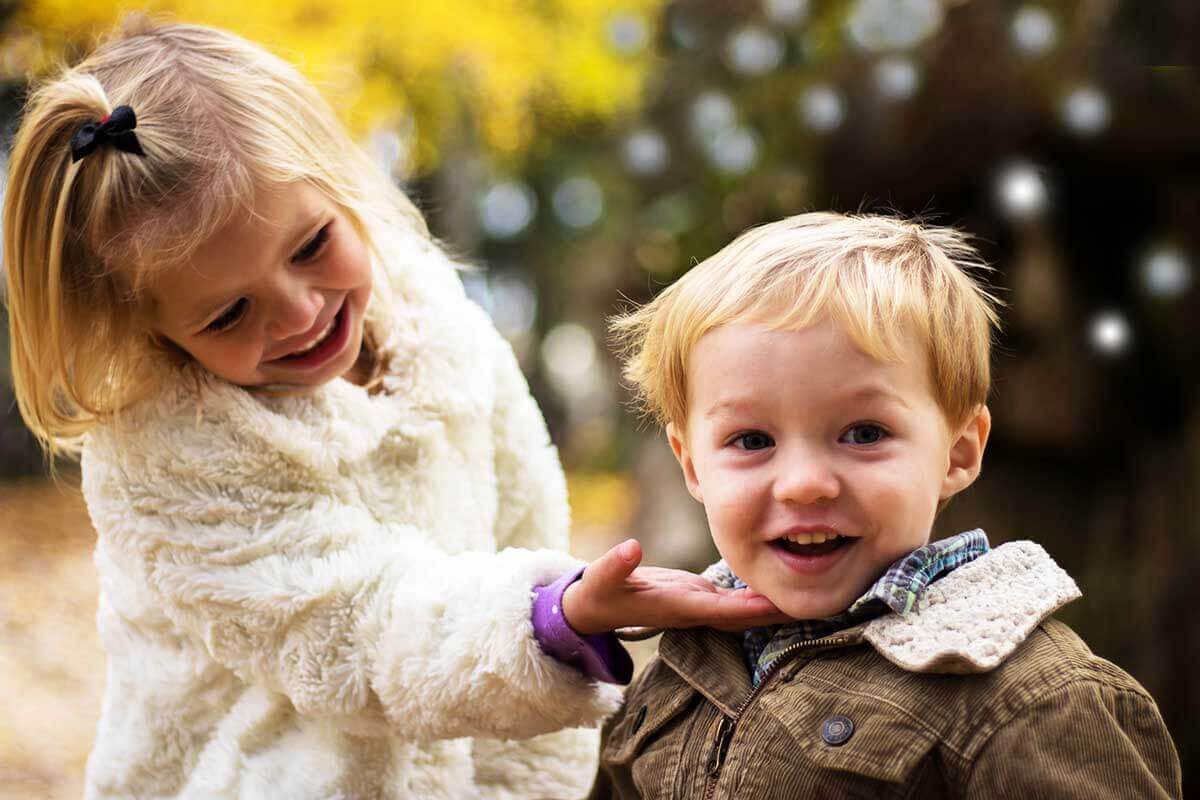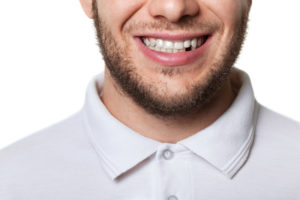How to Establish the Best Oral Hygiene Routine for Children
Followers of this Smile Design Dentistry blog will quickly recognize our doctors’ exceptional expertise and knowledge of how important oral health is – especially when it come to kids daily dental care. Knowing that healthy daily routines reap benefits for a lifetime, how does a parent inspire and nurture their kid’s oral habits?
Healthy teeth and gums are vital for a child’s overall well-being. They need to function properly to chew, talk, smile, and enjoy a sense of self confidence. Conversely, poor daily oral care generates caries, infections, pain, an early loss of teeth, and/or additional teeth and gum related problems.
The foundation of great pediatric dental care – as young as possible – is important for your child’s health. To enjoy a healthy smile and teeth for a lifetime, this article offers tips and answers on how to get your kid’s daily dental care routine established.
Parents need to Help their Children Create:
1. A solid daily, oral cleaning routine at home.
2. A regular habit of going to the dentist for professional dental checkups and cleanings.
What is Oral Hygiene for Infants?
Babies are birthed into life with all their teeth; while you can’t see them, they are under the gum surface. Babies start teething around 4-6 months, and some begin later. The important point is to start good oral care for infants even prior to the first tooth breaking the gum’s surface. Healthy teeth emerge from healthy gums.
What Should Parents do to Care for an Infant’s Oral Health?
- Wipe your baby’s gums with a soft washcloth or oral wipe after feeding. This may remove accumulating bacteria that could potentially cause a baby’s new teeth to decay. Natural or added sugars in liquid or food are changed to acid by bacteria in the mouth. This acid then dissolves the outer part of the teeth, causing them to decay.
- Once baby teeth begin to erupt, brush their teeth twice a day with low fluoride toothpaste. We recommend using no more than a dollop that is the size of a grain of rice. Use a soft-bristle child-size toothbrush.
- Try to avoid your child clinging to their baby bottle after they are done drinking to prevent tooth decay. Baby bottle tooth decay may occur when babies drink milk, formula, or diluted juice from bottles over lengthy periods of time. Train them to fall asleep without the bottle.
- Schedule your child’s first dental appointment after his or her first baby tooth is visible or when their first birthday comes up. Schedule this 1st dental visit along with a one-year, well-baby visit with your pediatrician.
Why is Oral Health Important during Toddler Years?
Right out of the cradle, healthy baby teeth help an infant to eat and learn to speak clearly. Baby teeth function not only as food choppers, but act as placeholders and eventually guide permanent adult teeth into their correct position. They also help guide the jaw into its proper position when a child closes their mouth. Meaning, keeping baby teeth healthy is important.
Several unique oral care habits come into play at a young age. For example, the early establishment of age-appropriate tooth-brushing routines helps children adopt best practices later on as they grow up and permanent teeth appear.
How do Oral Habits Typically Change during Elementary School Years?
As your toddler becomes school age, their oral hygiene habits should grow and change with them.
On average, kids have all their baby teeth by the age of three. These are known as primary teeth. Commonly, baby teeth start falling out around age six to make way for their permanent, or adult, teeth to come in. Gaps between baby teeth are normal, as well as they often come in crooked and then drop down straighter. Most permanent teeth are in placed by age 13.
How to Keep a Preteen and Teenagers Oral Routine on Track?
- Keep a positive daily approach to good oral care. Listen carefully to their concerns. Often preteens become more conscious of their personal appearance; and most teenagers are keenly aware of their smile if they have crooked teeth. Offer advice on how they can look and feel better about their smile.
- Remind them, without a scolding tone, to use fluoride toothpaste for a full two minutes which not only fights cavities but also strengthens teeth. Hopefully, by now your teen has adopted their own personal habit of brushing twice a day or each time after eating, but if reminders are needed – use them.
- A power toothbrush might make brushing more fun for preteens and seem more “adultish”.
- Discuss what they can do for fresh breath and keep mouthwash on hand.
- Flossing is tremendously crucial at this point as most permanent teeth have erupted and cleaning between them is effective at helping to prevent cavities.
- Encourage children who play sports where they may get knocked in the face to wear a mouth guard. A good team coach will advise this as well to protect their teeth from injuries.
- Save up in advance if your child appears to need braces. Ask your dentist for their opinion and best time to start if clear Invisalign braces are recommended by your dentist.
What Bad Oral Habits Should Children Avoid?
If you see a bad habit forming that may hinder your child’s oral health, form a helpful plan quickly. Most importantly, be a role model and show them proper self-care and respect. If the need for a bad habit conversation comes up, first, share many positive things that they do; and then address the negative oral habit. Always maintain a positive and reassuring tone and choice of words.
Here is a list of common bad oral habits that kids may develop:
- Neglecting or forgetting their daily oral health routine.
- Forming a nail-biting habit.
- Forming a habit of opening things with their teeth.
- Forming a habit of chewing on the end of their pencil in school – or any other hard object.
- Forming a chewing gum habit.
- Consuming too many sugary items.
How Does Poor Oral Health Affect a Child’s Overall Health?
Tooth decay may cause pain and infection. This can trigger a fear of the dentist and raise barriers to the ease of you getting them to the dentist. If severe and left untreated for too long, it may even impact a child’s growth. Extensive tooth decay in baby or toddler’s teeth may incur serious consequences for your child’s nutrition, speech, and jaw development.
How is oral hygiene for kids different from adults?
A kid’s dentist will focus on gentle dentistry and ensure that the child is comfortable going to dental visits and knows good basic oral hygiene habits. Adults, especially seniors, may need to be more careful with over-brushing that could cause gum damage. Adults often have additional cleaning services compared to children – if they are facing staining, for example.
Only older children or adults generally need a sonic scaler if callous removal has become necessary. Grownups are also more likely to undergo a deep cleaning flossing.
How do I Make Dental Hygiene Fun for my Kids?
Try these tips to help your young son or daughter find oral hygiene fun:
- Let them select their own toothbrush. Maybe they will be inspired with their favorite colored toothbrush or one with their favorite Disney character.
- Let them choose their favorite tooth paste flavor – perhaps start with offering them a few great options to select from.
- Prechosen videos and books that talk about dental hygiene can be a part of your personal quality time with them.
- Use a timer or play their favorite happy song to ensure your kids brush their teeth for 2 minutes. Consider The Night Before the Tooth Fairy by Natasha Wing, Brush Your Teeth Please by Leslie Mcguire, or The Tooth Book by Dr. Seuss.
- Offer praise and find personal ways to reward them for maintaining good oral hygiene.
- Make it a great memory when they are “grown up” enough to lose their first tooth. Whether or not you want to support a belief in the tooth fairy is your personal parenting style. There are lots of ways to make the day special. Take pictures of their new missing tooth smile and let them feel important by selecting their favorite photo to share.
- If you are posting family vacation photos or other images online or adding them to a Christmas card, ask them “what’s your favorite smile of you?”
- When preparing for a family photo shoot, ask them something like, “What would you like to wear that shows off your best smile”?
- We turned some of our kids “cute sayings” into a rhyme or catchy ditto that become a fun recant when it’s time to brush their teeth before bed.
How can Parents Help a Child Overcome a Fear of the Dentist?
- First, own it if you have it; stop being afraid yourself. Lead them with a positive approach. Demonstrate and let them learn naturally by seeing you manage a great adult oral routine.
- Always let them know well in advance of their next dental appointment.
- Until the time of their dental visit, you can help them through any pending dental phobia. Let them freely express their fears to you in private. Avoid bringing their fear up in front of others if it may embarrass them as the day of their appointment draws closer.
- Proper communication with your child is the key. Talk to them about the importance of maintaining healthy teeth and gums. Focus on the benefits vs the risks. Explain that their dentist is a friendly, happy, and helpful doctor who will take care of their mouth, keeping them safe and healthy.
- Permit a young child to bring their favorite toy along in the car. If you’ve asked your dentist for permission prior to the day, a small soft stuffed animal toy or doll may accompany them throughout the appointment. This bit of comforting familiarity can be a helpful and calming distraction for your child while at their tooth checkup appointment. It may also keep them happy and quiet in the waiting room as they adjust to the new environment.
What Things should Parents of a Child with Dental Phobia NOT Do?
1. Don’t talk in an unhealthy manner with your child about unpleasant dental experiences that you had. Relating to them with humor or an “I understand story” is a better approach.
This may seem obvious, but even telling stories long before they ever see the dentist may promote dental phobia for your child. Stick to positive stories when describing what it’s like at the dentist’s office.
2. Avoid a commanding tone or statements that convey a need to “be good”, “be brave”, or to “be a big girl/boy” or else you’ll be disappointed in them. Avoid using words like “hurt,” “shots,” or “painful”, or “boring” when you talk to them about the dentist. Even shades of these words with “only a little” or “not very” may hinder overcoming their dental phobia.
3. Don’t go to just any dentist or someone who seems frightening to your child due to the way that they interact with them. Research and choose a child-friendly dental office. Someone who hurries with your child or fails at trying to assure them may make further dental appointments harder. Look out for their well-being by finding a dentist who has experience with young patients and their dental anxiety. If a dentist is not willing to take steps to ease your child’s fear, consider finding another dentist.
4. Don’t give up. Their oral health is worth it! You are establishing daily routines that will help prevent dental infections. It is understandably frustrating at times when your child refuses to go to the dentist, even for something as small as a fluoride treatment. Great parenting requires a lot of patience to deal with dental anxiety. Remember that keeping calm and nurturing is the most important thing to do for a fearful child. These types of fears are often only a phase; they will most likely grow out of it.
Is it Possible for a Child to have Gum Disease?
Yes. While proper daily oral hygiene makes this unlikely, it may ccur. There are multiple forms in which it can corrur.
Gum disease during childhood may happen in three different ways:
- Chronic gingivitis: An all too common condition in children, you may be clued in to the condition of chronic gingivitis by puffy gum tissue that turns bright red. It also bleeds easily.
- Aggressive periodontitis: Generalized aggressive periodontitis results in a child’s entire mouth bearing impact. This may be discovered during the adolescent and young teen years. Aggressive periodontitis is characterized by discovery of bone and tissue loss that supports their teeth.
- Generalized aggressive periodontitis: Often Generalized aggressive periodontitis results in the entire mouth bearing impact. It may start at puberty. Symptoms to look for include large deposits of calculus and plaque, inflamed gums and loose teeth. If they are being seen by your family dentist at least every six months, you can feel more at ease that this issue will not come up nor surprise you.
What are Common Dental Problems that Occur in Childhood?
A strong daily tooth brushing and flossing routine will avoid these common kid’s dental problems:
- Tooth Decay.
- Bad breath.
- Overly sensitive teeth.
- Thumb-sucking that may misshapen teeth alignment.
- Gum Disease.
- Teeth grinding habits.
- Canker sores or mouth ulcers.
- The early loss of baby teeth.
What is the Give Kids A Smile Day?
The Give Kids A Smile (GKAS) program was launched nationally in 2003; it affords underserved youth with free oral health care kits. GKAS events kick off every year on the first Friday in February, which is the official “Give Kids a Smile Day”. The ADA recognized and supports this grassroots effort that inspires kids to think about their oral health. It underscores your message that the importance of oral health to our kids overall health.
You can make it fun day by treating them to a new toothbrush, a meal out or preparing their favorite food as a reward to doing great.
What are the Consequences of Poor Oral Care Routines during Childhood?
According to the CDC, “children who have poor oral health often miss more school and receive lower grades than children who don’t. About 1 of 5 (20%) children aged 5 to 11 years have at least one untreated decayed tooth. 1 of 7 (13%) adolescents aged 12 to 19 years have at least one untreated decayed tooth”.
Also they may be embarrassed in school if their teeth began to show issues or are excessive crooked. By quickly addressing any needed oral care improvements, you help shape their self-esteem and give them beautiful smiles for life.
Read our helpful FAQ page that answers questions about dentistry in general. Add to your knowledge about kids
daily dental care!
SUMMARY
The doctor’s at Plymouth, MN Smile Design Dentistry can care for your entire family’s oral health. We are passionate to help you know how to establish a great at-home oral care routine for your kids.
Call us to schedule an appointment today! 763-537-1238
 Dr. Jennifer Bertrand edited and approved this article. She is a professional passion includes ongoing continuing education to provide high-quality, cutting-edge, artistic dentistry. Her top interests are in comprehensive restorative and family dentistry. She values the opportunity to get to know her patients on a personal level and believes this fosters a more comfortable, pleasant dental experience. Author, Jeannie Hill, who helps helps healthcare businesses answer key questions.
Dr. Jennifer Bertrand edited and approved this article. She is a professional passion includes ongoing continuing education to provide high-quality, cutting-edge, artistic dentistry. Her top interests are in comprehensive restorative and family dentistry. She values the opportunity to get to know her patients on a personal level and believes this fosters a more comfortable, pleasant dental experience. Author, Jeannie Hill, who helps helps healthcare businesses answer key questions.




